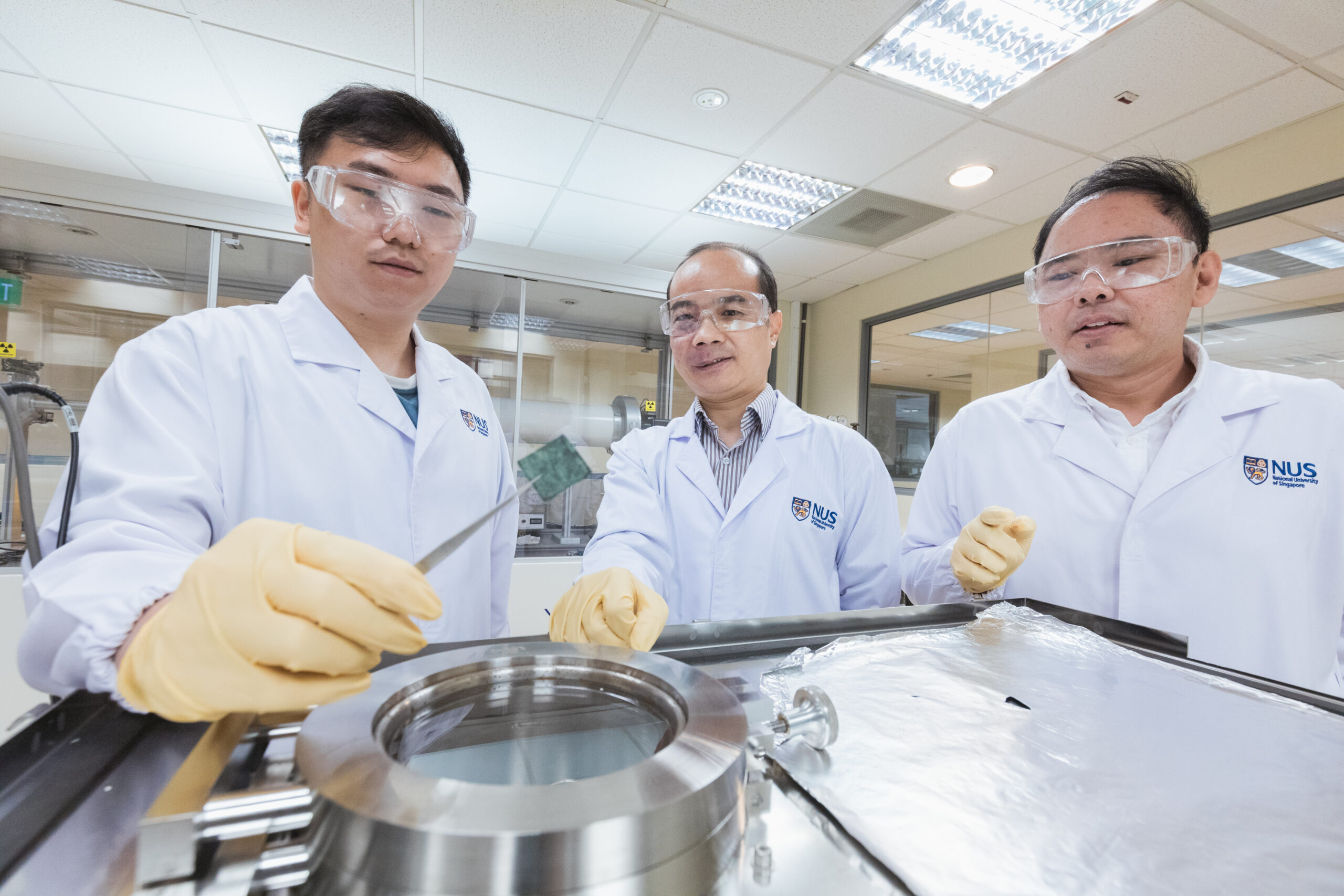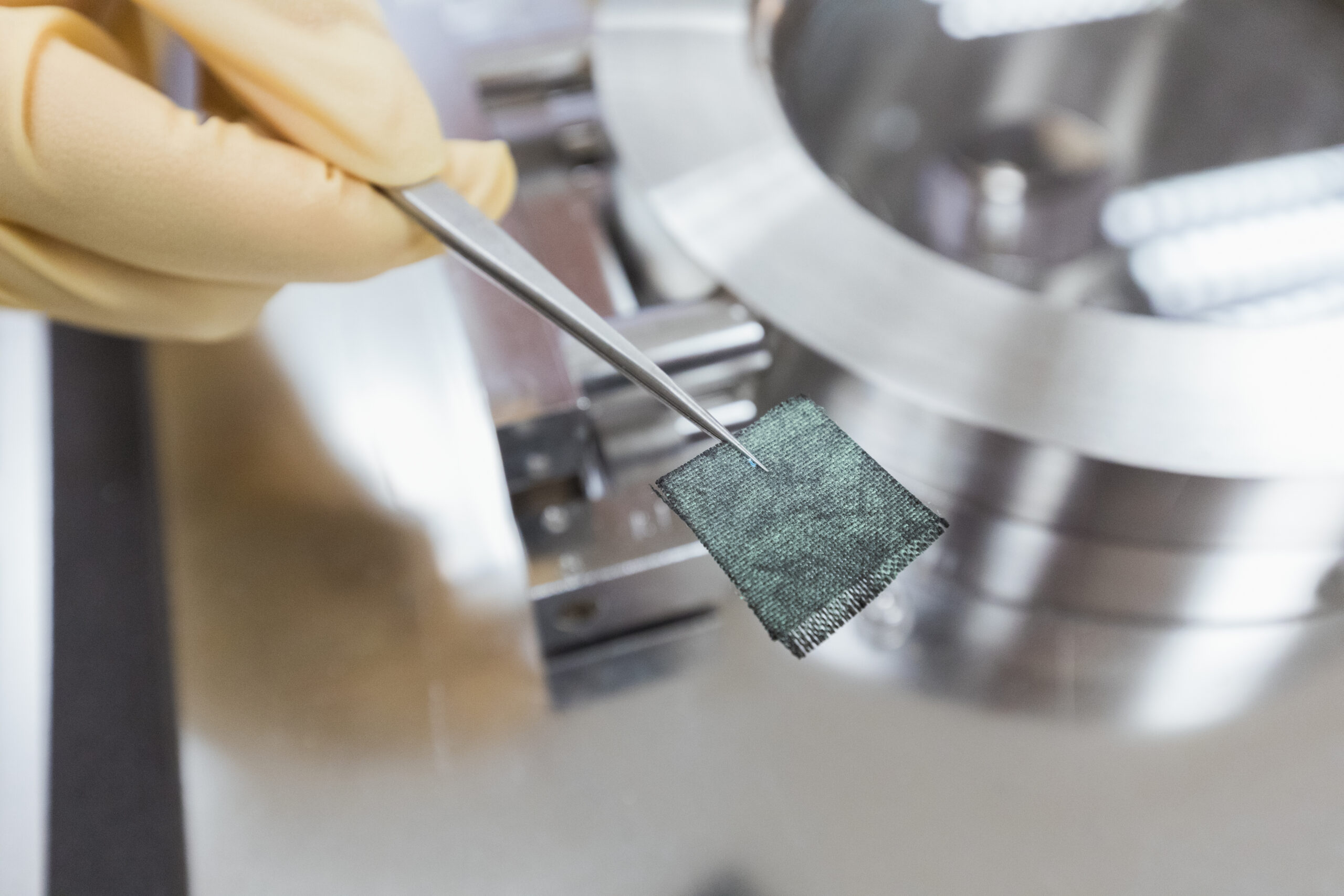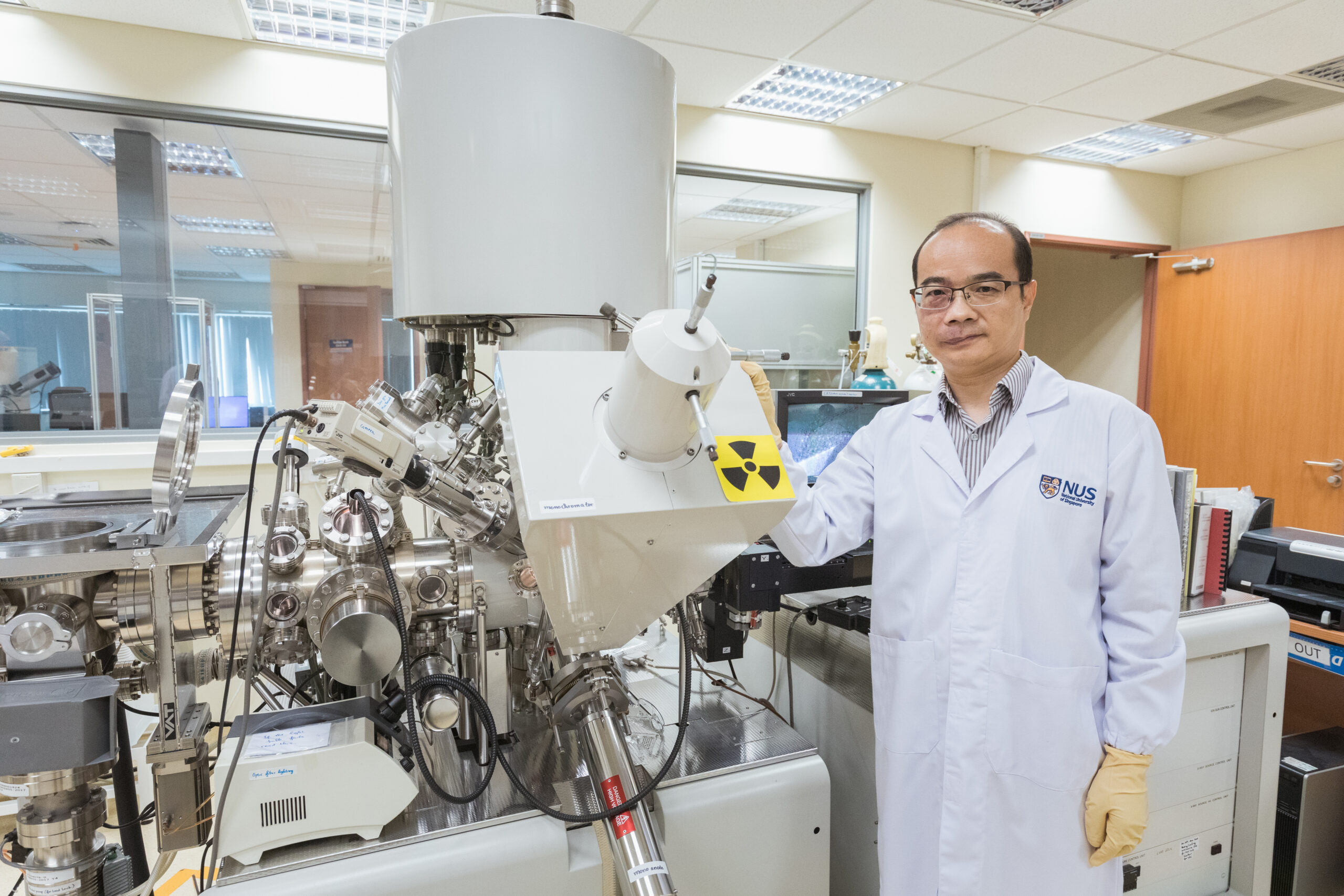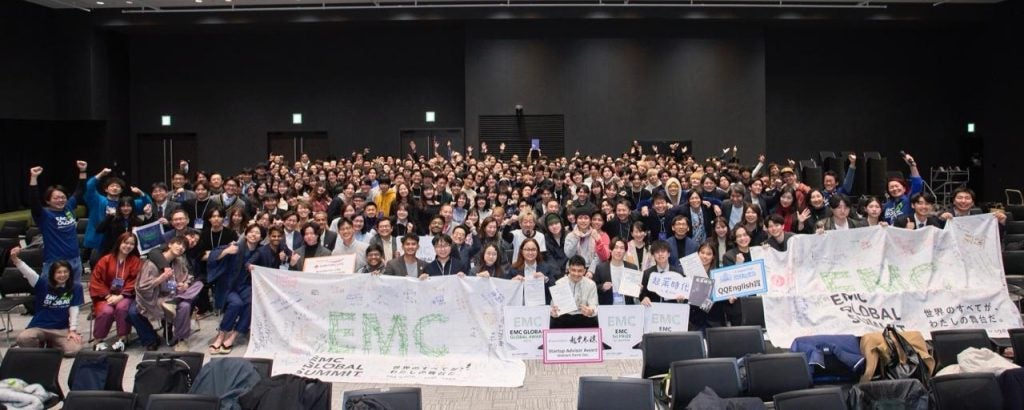
A chance discovery by researchers at the College of Design and Engineering, NUS could revolutionise the way water is broken down to release hydrogen and improve the affordability of the gas as a source of clean energy.
After their laboratory lights failed one night, the team led by Associate Professor Xue Jun Min, Dr Wang Xiaopeng and Dr Vincent Lee Wee Siang from the Department of Materials Science and Engineering, discovered that light can trigger a previously unknown electro-catalytic mechanism in water electrolysis - the process through which water is broken down into hydrogen and oxygen.
The result is a more energy-efficient method of obtaining hydrogen.
The discovery could open up cheaper and more effective industrial methods of producing hydrogen, putting the environmentally friendly fuel within the reach of more people and industries.
"We discovered that the redox centre for electro-catalytic reaction is switched between metal and oxygen, triggered by light," said Assoc Prof Xue. "This largely improves the water electrolysis efficiency."

The breakthrough was achieved in collaboration with Dr Xi Shibo from the Institute of Sustainability for Chemicals, Energy and Environment under the Agency for Science, Technology and Research (A*STAR); Dr Yu Zhigen from the Institute of High Performance Computing under A*STAR; and Dr Wang Hao from the Department of Mechanical Engineering.
The team's findings were published in the renowned scientific journal Nature on 26 October 2022.
Accidental breakthrough
Under normal circumstances, Assoc Prof Xue and his team may not have been able to come across such a groundbreaking discovery. But an accidental power trip of the ceiling lights in his laboratory almost three years ago allowed them to observe something unexpected and new to science.
At the time, the ceiling lights in Assoc Prof Xue's research lab were usually left on all night. However, one night in 2019, the lights failed due to a power trip. When the researchers returned the next day, they found that the performance of a nickel oxyhydroxide-based material in the water electrolysis experiment had fallen drastically.
"This drop in performance, nobody has ever noticed it before, because no one has ever done the experiment in the dark," said Assoc Prof Xue. "Also, the literature says that such a material shouldn't be sensitive to light; light should not have any effect on its properties."

The electro-catalytic mechanism in water electrolysis is a well-researched topic, while the nickel-based material is a common catalytic material.
To establish that they were on the verge of discovering something groundbreaking, the researchers embarked on numerous repeated experiments, digging deeper into the mechanics behind the phenomenon and even repeating the experiment outside of Singapore to ensure that their findings were consistent.
Three years on, Assoc Prof Xue and his team were finally able to share their findings.
Next steps
The team is now working on designing a new way to improve industrial processes to generate hydrogen.
One possibility, Assoc Prof Xue suggests, is to make the cells containing water transparent, to allow light into the water-splitting process.
"This should require less energy in the electrolysis process, and it should be much easier using natural light," he said. "More hydrogen can be produced in a shorter amount of time, with less energy consumed."
Commenting on the serendipitous discovery, Assoc Prof Xue said the way to develop science is not to keep finding new ways to do what has already been done, but to constantly push the boundaries.
"It's only through accumulation of new knowledge that we can improve society progressively."
For more on this, see the press release on NUS News





